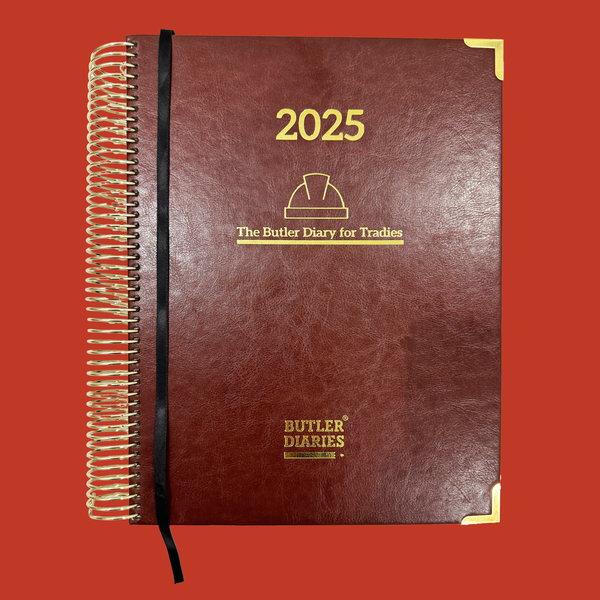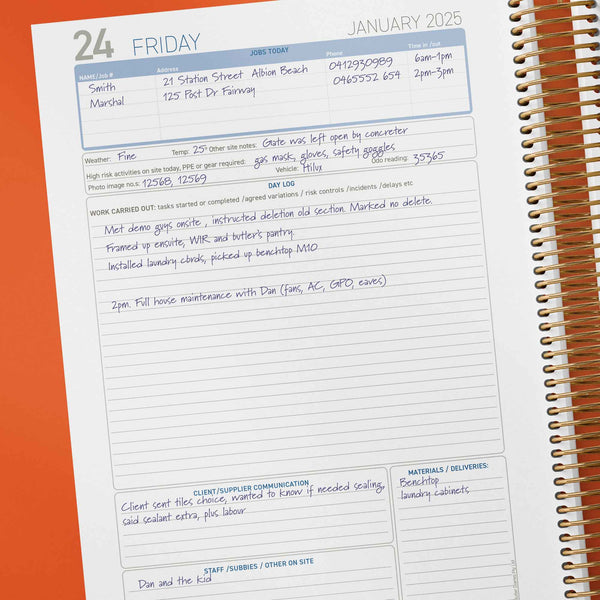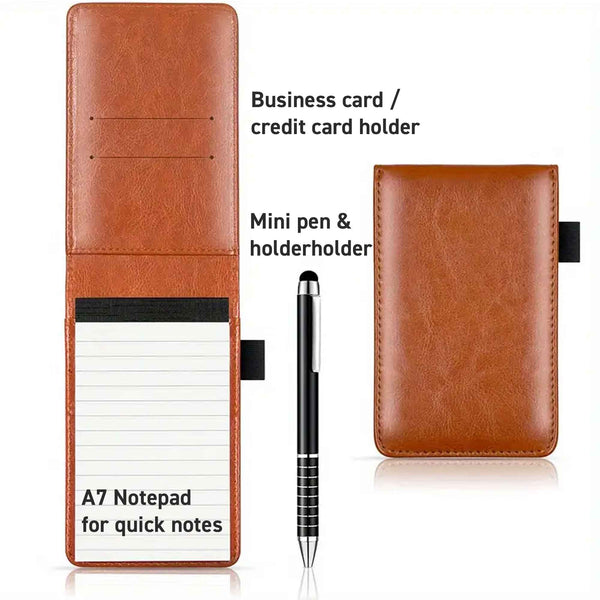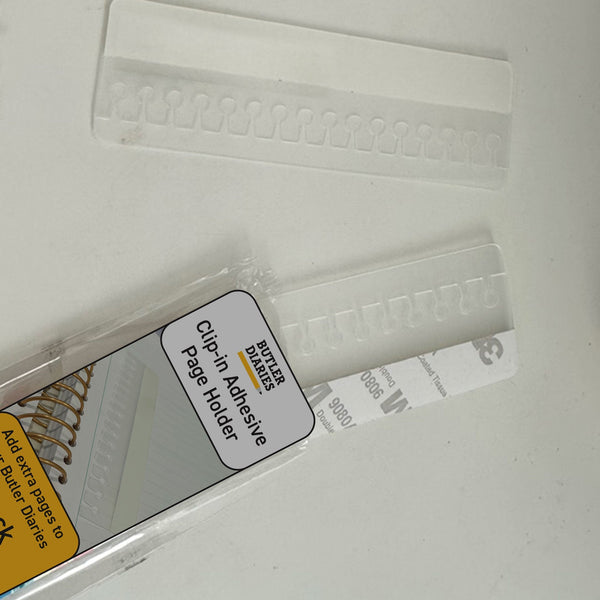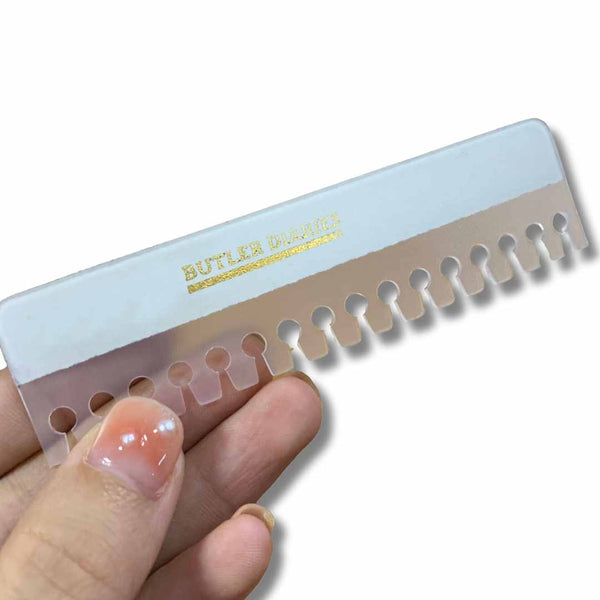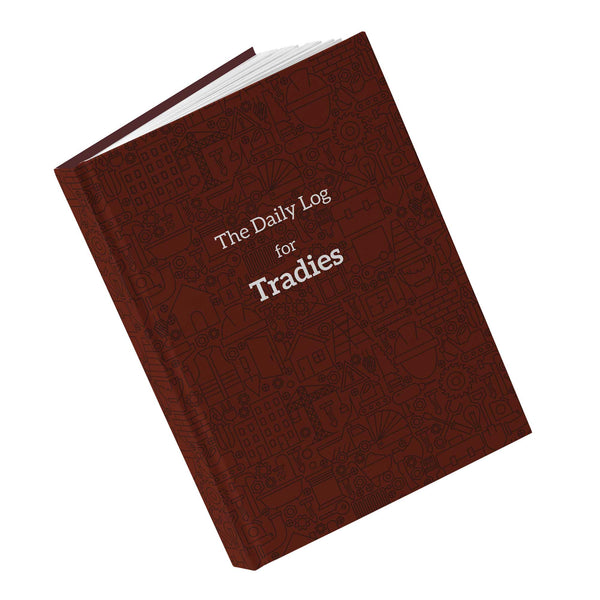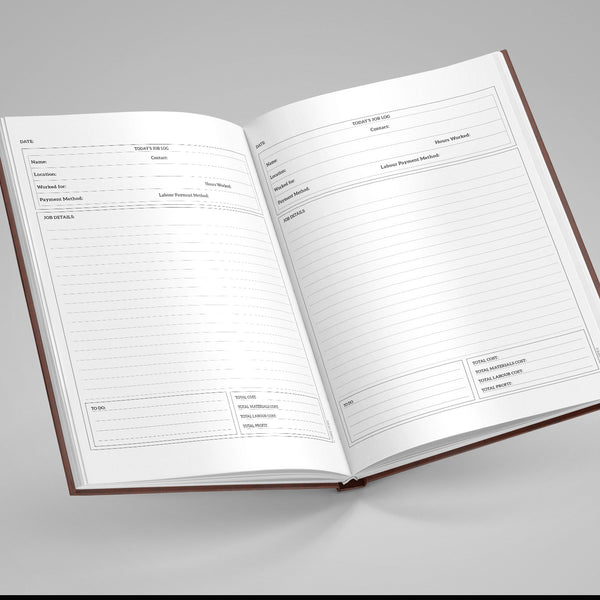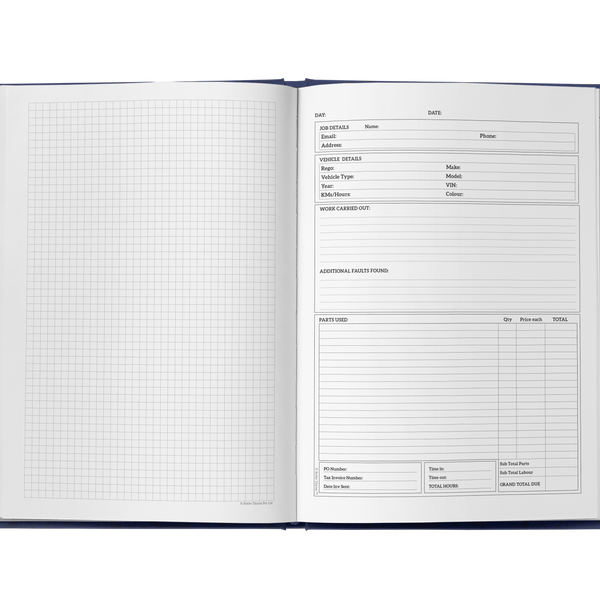December's here and you're probably thinking "Where did the year go?" Between chasing jobs, managing clients, and keeping up with the day-to-day chaos, it's easy to reach the end of the year feeling like you're scrambling to catch up.
But here's the thing - how you finish the year sets you up for how the next one starts. Smart tradies use the quiet period to get organised, sort their finances, and plan ahead. It's not just about ticking boxes for the Australian Taxation Office (ATO) - it's about setting yourself up for a stronger, more profitable year ahead.
This checklist covers everything you need to wrap up your business properly, from tax planning that actually saves you money to equipment maintenance that prevents January disasters.
Financial Review: Know Where You Actually Stand
Get Your Books in Order
The reality check: You can't plan for next year if you don't know how this year actually went financially.
Essential tasks:
- Chase all outstanding invoices - don't let clients drag payments into next year
- Pay outstanding supplier bills to maximise this year's tax deductions
- Reconcile bank statements and credit card accounts
- Update your books with any cash jobs or missing transactions
Documentation check: Whether you use accounting software or track everything in your Construction Diary, make sure all job variations have been invoiced. It's amazing how much money gets left on the table because variations weren't properly documented and charged.
Tax Planning That Actually Saves Money
Key deadline: The 2024-25 financial year ends 30 June 2025, but smart planning starts now.
Immediate opportunities:
- Instant asset write-off: Small businesses can immediately deduct assets under $20,000 until June 30, 2025
- Tool deductions: Tools under $300 can be claimed in full, while tools over $300 are depreciated over time
- Vehicle expenses: Car expense rate for 2024-25 is 88c per kilometre
- Professional development: Training, certifications, and trade association memberships
Get professional help: A good accountant will save you more than they cost. Book an appointment before the end-of-year rush.
Materials and Equipment: Set Yourself Up for Success
Smart Material Management
The January problem: Nothing's worse than starting the year with delays because you didn't plan ahead.
Action steps:
- Review January job requirements and order materials before suppliers shut down
- Clear out obsolete stock that's taking up space
- Negotiate better pricing for next year while suppliers want to hit targets
- Document everything in your Construction Diary under Materials/Deliveries so nothing gets forgotten
Equipment Maintenance That Prevents Disasters
The winter opportunity: Quieter periods are perfect for maintenance that keeps equipment running when you're busy.
Essential maintenance:
- Service all power tools and test safety features
- Check and maintain vehicles - tyres, fluids, safety equipment
- Calibrate measuring equipment and test electrical tools
- Replace worn safety gear before it's needed
- Update tool inventory and identify what needs replacing
Keep records: Proper maintenance records help with warranty claims and show clients you're professional about safety.
Staff and Team Management
Payroll and Employment Matters
Compliance essentials: Super guarantee contributions must be paid by 30 June to qualify for tax deductions.
Year-end checklist:
- Finalise all pay runs and ensure super contributions are up to date
- Review employment contracts and update if needed
- Conduct performance reviews and plan development for next year
- Decide on Christmas bonuses and communicate clearly
- Plan for any hiring or redundancies needed in the new year
Document communications: Whether you use digital tools or your Construction Diary, keep detailed records of all staff communications to protect yourself and maintain good relationships.
Skills and Development Planning
Investment in your team: Plan training and development that improves skills and shows you value your people.
Consider:
- Safety training updates and certifications
- New technology or tool training
- Leadership development for senior staff
- Cross-training to increase team flexibility
Business Planning and Goal Setting
Learn from This Year
Honest assessment: What actually worked and what was just busy work?
Key questions:
- Which jobs were most profitable and why?
- What caused the biggest time wastage or stress?
- Which clients were worth keeping and which weren't?
- What systems or processes need improving?
Document insights: Use the weekend pages of your Construction Diary to capture this information while it's fresh in your mind.
Set Goals That Actually Matter
Beyond "make more money": Good goals are specific, measurable, and actually achievable.
Focus areas:
- Financial: Target revenue, profit margins, cash flow improvements
- Operational: Efficiency improvements, quality standards, customer satisfaction
- Growth: New services, markets, or team expansion
- Personal: Work-life balance, skills development, health goals
Compliance and Legal Matters
Licences and Certifications
Stay legal: Construction businesses must comply with specific licensing and safety requirements.
Check and update:
- Trade licences and any specialist certifications
- Business registration and insurance policies
- Workers' compensation and public liability cover
- Vehicle registration and roadworthy certificates
- Safety training certificates for all staff
Plan renewals: Set calendar reminders for anything expiring in the next 12 months so you're not scrambling at the last minute.
Insurance Review
Annual check: Insurance needs change as your business grows.
Review coverage for:
- Public liability limits - are they adequate for your current jobs?
- Tool and equipment values - update for new purchases
- Income protection - does it reflect your current earnings?
- Cyber insurance - increasingly important as more business goes digital
Administrative Tasks That Matter
Document Your Year Properly
Future-proof your business: Good records protect you legally and help you make better decisions.
Essential documentation:
- Job completion reports with photos and client sign-offs
- Safety incidents and how they were resolved
- Client feedback and any complaints
- Supplier performance and pricing changes
- Key learnings and process improvements
Audit your records: Whether digital or in your Construction Diary, take time to review and organise your achievements, challenges, and lessons learned. This becomes invaluable for future planning and business growth.
Technology and Systems Review
What's working, what isn't: Now's the time to evaluate your business systems.
Consider:
- Are your current tools actually saving time or just creating more work?
- Do you need better job management software, or do you work better with hands-on planning?
- Is your invoicing system getting you paid faster?
- Are you backing up important data properly?
Preparing for Next Year
January Planning
Hit the ground running: Use the quiet period to prepare for when things get busy again.
Get ahead by:
- Confirming January job schedules and requirements
- Preparing quotes for work that might start early in the year
- Planning any marketing activities for the new year
- Scheduling early-year maintenance and servicing
- Setting up systems and processes you want to implement
Choose Your Tools for Success
Success in the year ahead depends on having systems that work for how you actually operate.
For comprehensive business management: Your Construction Diary is designed for tradies who plan and think better with hands-on documentation. If you're someone who remembers better when you write things down or prefers seeing everything laid out on paper, this is your foundation tool.
For detailed daily tracking: The Daily Log for Tradies works perfectly for capturing daily business activities, job progress, and important observations that feed into your bigger picture planning.
For professional interactions: A Leather Notepad and Pen ensures you look professional during client meetings, supplier negotiations, and planning sessions while capturing important information reliably.
The Bottom Line
Finishing the year strong isn't about doing everything perfectly - it's about doing the important things systematically.
Priorities in order:
- Financial housekeeping: Get your money matters sorted for tax time
- Equipment and materials: Set yourself up to start next year without delays
- Staff and compliance: Keep everyone happy and legal
- Planning and goals: Give next year direction and purpose
Remember: The tradies who succeed long-term aren't necessarily the most skilled with tools - they're the ones who run their businesses like businesses.

Take the time to do this properly now, and you'll thank yourself when everyone else is scrambling in January while you're running like a well-oiled machine.




